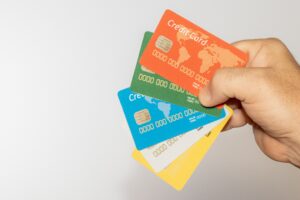Pay Off Loan Debt Faster: Practical Tips for Reducing Your Debt Sooner
Discover effective strategies to pay off your loan debt faster. Learn proven tips to manage your finances and reduce interest costs.
These proven tips can help you reduce your debt quickly and save money.
Paying off loan debt can feel like a daunting task, especially when it seems to stretch out for years. Whether it’s student loans, car loans, or credit card debt, the process can feel overwhelming.
However, there are several strategies you can employ to speed up the repayment process and get closer to financial freedom.
By using these tips, you can lower your debt faster, save money on interest, and move toward a debt-free future.

Practical Tips to Pay Off Loan Debt Faster
1. Make Extra Payments Whenever Possible
One of the most effective ways to pay off debt faster is by making extra payments. Even small amounts can have a big impact over time.
If your loan terms allow, consider making biweekly payments instead of monthly ones.
This approach results in an additional payment each year, helping you pay off the loan more quickly.
Alternatively, you can round up your payments or contribute extra cash whenever you have it available. The more you pay now, the less you’ll owe in interest later.
2. Prioritize High-Interest Debt
Not all debts are equal. If you have multiple loans, focus on paying off the ones with the highest interest rates first.
This will reduce the amount of interest you’re charged over the life of the loan, making it easier to pay off the principal balance.
Once your highest-interest loan is paid off, you can shift your focus to the next one in line, continuing the cycle until you’re debt-free.
This method is often called the “avalanche” method and is a great way to minimize the cost of your debt.
3. Refinance Your Loans
Refinancing your loans is another strategy for reducing the time it takes to pay off your debt. If you qualify for a lower interest rate, refinancing can reduce your monthly payments or shorten the length of your loan.
This option works especially well for student loans, personal loans, and mortgages.
Keep in mind that refinancing might involve fees, so it’s important to weigh the pros and cons before making the decision.
4. Cut Back on Unnecessary Expenses
Review your monthly spending habits and identify areas where you can cut back.
Whether it’s dining out less, reducing subscriptions, or finding more affordable entertainment options, these small adjustments can free up extra funds to apply toward your debt.
Redirect any savings you create directly to your loan payments. The more you can contribute, the faster you’ll be able to pay off your debt.
5. Use Windfalls to Your Advantage
Any unexpected windfalls, like tax refunds, work bonuses, or gifts, can be used to pay down your loan debt.
Instead of spending this extra cash, consider putting it toward reducing your principal balance.
These lump sums can make a significant dent in your debt, particularly if you apply them to high-interest loans.
6. Consider Debt Consolidation
If you have multiple loans with varying interest rates, debt consolidation might be a good option to simplify your payments.
Debt consolidation combines all your debts into one loan, often at a lower interest rate. This allows you to make a single monthly payment, which can make managing your debt easier.
It also helps you stay on track with your payments, potentially helping you pay off the loan more quickly.
7. Automate Your Payments
Setting up automatic payments for your loans ensures that you never miss a due date.
While this won’t directly pay off your loan faster, it helps you stay consistent with your payments, avoiding late fees and keeping your credit in good standing.
If you can afford it, increase the automatic payment amount to pay off your debt quicker.
Conclusion
Paying off loan debt faster is entirely possible with the right strategies. By making extra payments, prioritizing high-interest debt, refinancing, and cutting back on unnecessary expenses, you can significantly reduce the time it takes to become debt-free.
Combining these tips with consistency and discipline will help you achieve financial freedom more quickly, allowing you to put your hard-earned money toward your future, rather than debt repayment.





